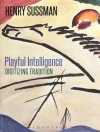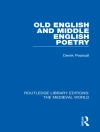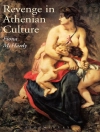This volume presents the first collection of essays dedicated to the science fiction of microbiologist Joan Slonczewski. Posthuman Biopolitics consolidates the scholarly literature on Slonczewski’s fiction and demonstrates fruitful lines of engagement for the critical, cultural, and theoretical treatment of her characters, plots, and storyworlds. Her novels treat feminism in relation to scientific practice, resistance to domination, pacifism versus militarism, the extension of human rights to nonhuman and posthuman actors, biopolitics and posthuman ethics, and symbiosis and communication across planetary scales. Posthuman Biopolitics explores the breadth and depth of Joan Slonczewski’s vision, uncovering the reflective ethical practice that informs her science fiction.
Tabela de Conteúdo
1. An Interview with Joan Slonczewski.- 2. Posthuman Narration in the Elysium Cycle,
Bruce Clarke.- 3.
A Door into Ocean
as a Model for Feminist Science,
Chrisy Tidwell.- 4. “Then Came Pantropy”: Grotesque Bodies, Multispecies Flourishing, and Human-Animal Relationships in
A Door Into Ocean,
Chris Pak.- 5. Bodies That Remember: History and Age in
The Children Star and
Brain Plague, Derek J. Thiess.- 6. Microbial Life and Posthuman Ethics from
The Children Star to
The Highest Frontier, Sherryl Vint.- 7. The Future at Stake: Modes of Speculation in
The Highest Frontier and
Microbiology: An Evolving Science, Colin Milburn.- 8. Wisdom is an Odd Number: Community and the Anthropocene in
The Highest Frontier, Alexa T. Dodd.
Sobre o autor
Bruce Clarke is Paul Whitfield Horn Professor of Literature and Science in the Department of English at Texas Tech University, USA. His books include Gaian Systems: Lynn Margulis, Neocybernetics, and the End of the Anthropocene (2020) and Neocybernetics and Narrative (2014). With Manuela Rossini, Clarke also co-edited The Cambridge Companion to Literature and the Posthuman (2017).












